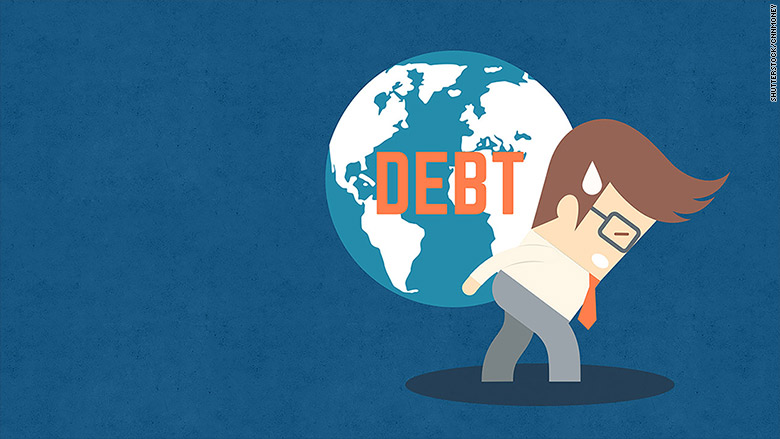
Red flags are rising on Corporate America's debt.
The average rating on U.S. corporate debt has hit nearly a 15-year low, according to a new report by Standard & Poor's.
"We believe corporate default rates could increase over the next few years," according to S&P credit analysts Jacob Crooks and David Tesher.
The average rating on companies that issue debt has fallen to 'BB,' or junk status. That is even below the average S&P rating for U.S. corporate debt during and in the aftermath of the financial crisis in 2008 and 2009.
There are already concerns about energy companies defaulting on loans due to low oil prices. But new tech firms like Solera and media companies like iHeart too have had their credit rating downgraded this year, according to S&P.
Since 2012, there's been a surge in low-rated companies seeking cash.
In the past four years, S&P has assigned a single-B rating to 75% of companies accessing the debt markets for the first time. That rating is just one notch up from triple-C, a rating given to companies with a high probability of default.
Related: Top Fed official: April rate hike could happen
Companies with a single-B rating include PF Chang's, Toys R US and Men's Wearhouse (MW). That doesn't mean they're going to default: They're just dangerously close to the territory where companies tend to default.
The "rapid rise" in companies with low credit ratings accessing the bond markets can be traced to the easy availability of cash in recent years.
How did this happen? Here are a few key dominoes.
1. The Fed created a super low interest rate environment when it put rates next to zero in 2008.
2. Investors looking for more yield move away from safe assets like U.S. Treasury bonds and into higher-risk assets like bonds issued by lower-rated companies.
3. That makes it easier for low-rated companies to get cash at low rates from the capital markets.
Now, however, the tables are turning. The Fed is slowly starting to increase rates and investors' appetite -- and the cash available -- for low-rated companies is on the decline. Add to that the gloomy outlook for the global economy and low commodity prices, and some companies may struggle to pay back what they borrowed.


